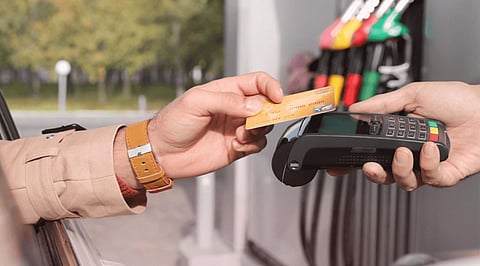

Running a trucking company isn’t cheap. Fuel prices fluctuate, drivers rack up expenses on the road, and managing costs can feel like a never-ending battle. For many companies, finding ways to control spending is just as important as keeping trucks moving. That’s where fuel cards come in, offering a simple but powerful solution to help trucking businesses cut costs, streamline operations, and improve overall efficiency.
From better risk management strategies to tighter control over spending, fuel cards do more than just pay for gas—they transform how trucking companies manage their finances. Let's look at how they’re making a real impact and keeping more money in the bank.
Every trucking company faces risks—fuel theft, fraud, and overspending can all eat into profits if left unchecked. That’s why having strong risk management strategies in place is crucial. Fuel cards offer a direct way to reduce financial risks by providing detailed tracking, limiting unauthorized purchases, and ensuring every dollar spent goes toward legitimate business expenses.
With a traditional payment system, drivers might use company funds for personal expenses or make purchases that aren’t strictly necessary. Fuel cards eliminate that problem by allowing businesses to set spending limits, track real-time transactions, and monitor fuel consumption per truck. If spending patterns look suspicious or out of line with a vehicle’s expected fuel usage, companies can flag and investigate issues before they become major losses.
Fuel cards also reduce the risk of lost receipts and inaccurate record keeping. Instead of relying on the drivers to submit their fuel receipts manually, the transactions are logged automatically, cutting down on paperwork errors and ensuring that every expense is accounted for.
One of the biggest benefits of having a fuel card is that it ensures money is only spent on what’s necessary. Unlike traditional credit or debit cards, which can be used for many different kinds of purchases, certain fuel cards are designed specifically to cover fuel expenses—nothing else.
For trucking companies, this level of control is a game changer. Drivers can’t use these cards for snacks, personal items, or unnecessary roadside purchases. Every transaction is tied directly to fuel, ensuring that business funds aren’t wasted.
Fuel cards also help companies negotiate better fuel prices. Many trucking businesses partner with fuel providers to secure discounts that wouldn’t be available with standard payment methods. Over time, these small savings per gallon add up to significant reductions in overall fuel costs.
Not every fuel savings occurs at the pump—some of the most intelligent ones begin with an app and your phone. Some fuel card companies, such as AtoB, for instance, are providing tech-savvy solutions that enable drivers to save money even before they refuel. With an integrated mobile app, AtoB assists truck drivers in finding the most affordable gas stations along their routes so that every dollar goes a little further on the road.
This real-time price comparison feature provides trucking businesses with a competitive advantage. Rather than guessing where to fill up or taking a chance that the most convenient spot is optimal, drivers can make better fueling choices with a few clicks in the app. Over time, making this choice repeatedly, again and again, makes a difference—particularly for businesses operating fleets of multiple trucks and frequent fuel stops.
The cherry on top? The app integrates perfectly into AtoB's broader platform, which offers spending control tools, route optimization when used in tandem with telematics solutions, and driver accountability. By pairing smart features with price transparency, a fuel card solution like this gives trucking firms and their drivers something more than merely a payment means—more, it gives them the information and tools to make wiser financial decisions in the moment.
Fuel fraud and abuse can be expensive, and without proper management, some drivers will exploit company fuel accounts. Fuel cards mitigate much of this risk by associating each transaction with a specific driver and vehicle, introducing an element of accountability that conventional payment methods simply cannot provide.
Drivers are aware that every purchase of fuel is monitored in real time, discouraging unauthorized use. When a truck's fuel efficiency appears suddenly to decrease or purchases do not match trip records, managers can quickly investigate. In addition to preventing fraud, this also discourages drivers from wasteful fuel use and competent driving practices. Some programs even offer notifications for suspect spending patterns, allowing trucking companies to catch potential problems before they become expensive problems.
Fuel is not only about price—it's about efficiency. The manner in which fuel is bought and burned can make a substantial difference in operating costs overall. Fuel cards allow trucking operations to maximize fuel efficiency by allowing them to review miles per gallon, purchase location, and driver fueling behaviors.
As firms review this information, they are able to make informed decisions that minimize waste and maximize savings. For instance, if a driver consistently refuels at more expensive stations, drivers can utilize apps, such as the one available through AtoB, to route more affordable fuel stops into routes. Then, if a truck is consuming fuel at a rate higher than expected, it may be time to have a maintenance check to provide optimal engine function.
